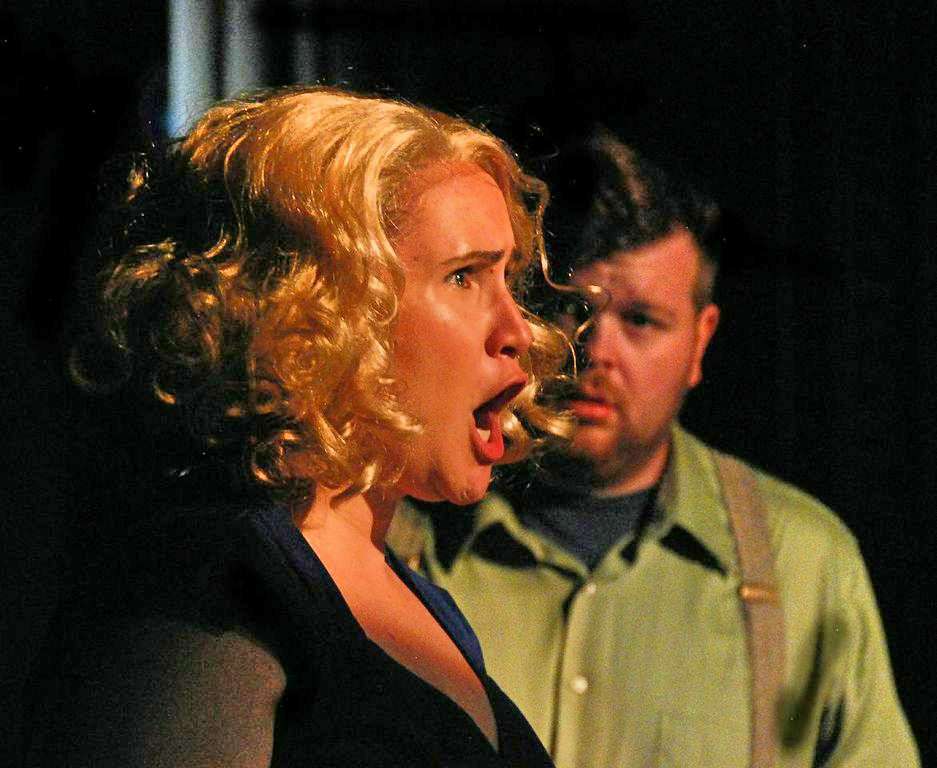|
Back
The Fiendish and the Fairy Tale New York
Bohemian National Hall, 321 East 73rd Street
08/22/2013 - & August 23, 2013
Serge Prokofiev: Maddalena, opus 13 (New York Premiere, American Russian-language Premiere)
Piotr Tchaikovsky: Iolanta, opus 69
Maddalena: Doris Hastings (Maddalena), Kyle van Schoonhoven (Gennaro), Gerard Michael D’Emilio (Stenio), Renata Kapilevich (Gemma), Dante Lucio Zuccaro (Romeo), Daniel Kerr, Dante Lucio Zuccaro, Kevin Rockower, Jonathan Dauermann (Gondoliers)
Iolanta: Amber Novak Daniel (Iolanta), Christian Sineath (Brigitta), Kirsti Esch (Laura), Kerry Gottshall (Marta), Christopher Eaglin (Vaudemont), Daniel Kerr (Almeric), Claudio Mascarenhas (Doctor Ebn-Khakia), Boris Mitchell (Robert), Jonathan Dauermann (Bertrand), Duncan Hartman (King Rene)
Opera Slavica Orchestra, William Hobbs (Artistic/Music Director)
Kara-Lynn Vaeni (Stage Director), Nick Francone (Scenic Design, Maddalena), Rachel Shapira (Scenic Design, Iolanta), Liam O’Brien (Costume Design), Matthew Fick (Lighting Design); Glenn Proud III (Assistant Director/Fight Choreographer)

D. Hastings, K. Van Schoonhaven (© Derek Halsey)
What a revolutionary difference 18 years can make. Opera Slavica, that so-dynamic company which presents rare Slavic operas, had two operas last night that were not only rarities, but the contrasts were almost disconcerting.
Tchaikovsky’s very last opera was a fairy tale (appropriate since it was paired in 1892 with Nutcracker), filled with harps, gentle fanfares, a Sleeping Beauty-style blind heroine made to see by a handsome visiting Knight.
Preceding that, though, was Serge Prokofiev’s very first opera, a student effort, whose story was the opposite. A wicked sexual thrill-seeker female, two males who she twists around her fingers, two murders and an ending as cynical as Tchaikovsky’s was spiritual.
Both productions were directed with spirit, and sung mainly with youthful excellent voices. (Though I am not one to judge the Russian by these mainly American soloists, relying on the screened titles.) If I had my druthers, I’d prefer Prokoviev’s Maddalena, but this was not the fault of the production here. With only three main characters, the voices had a homogeneity cut out for the story. And that tale, based on a Renaissance story, was concise, not burdened with 19th Century set pieces–and its eponymous soprano was almost unbearably brilliant.
As the bored wife who goads her husband and lover to fight to the death, Doris Hastings was a combination of the vamp Theda Bara, the tramp Jean Harlow, and Faye Dunaway at her weltschmerz best in the opening of Bonnie and Clyde. Over-lipsticked, scheming narcissistic, Ms. Hastings paraded to the front of the proscenium to vaunt her tiredness, sexually grasped her husband, and finally, with an almost throwaway action carelessly kick the two bodies.
Yes, her voice was fine. But it was these movements that made the opera such a treat. Her husband, Kyle van Schoonhaven, would have been a bluff peasant (actually his part is a painter), was particularly strong vocally. While the alchemist lover, Gerard Michael D’Emilio, had a relatively mild voice, the character was equally oozing and demented.
Music Director William Hobbs’ orchestration, taken from the original piano score (the composer never finished it) was adequate for the smaller orchestra. The staging (with Maddalena doing a striptease behind a screen) was always lively. And while the 1930’s working-class costumes weren’t appropriate for an alchemist, the opera had a Grand Guignol accuracy.

C. Eaglin, A.N. Daniel (© Derek Halsey)
Tchaikovsky’s 90-odd minute opera was far more complicated. With a fairly long cast, the voices were uneven (though the two lovers, Amber Novak Daniel and Christopher Eaglin, were more than satisfactory), In fact, their duet, where Mr. Eaglin explains to the blind princess about the glories of the visual world (and she replies, “But how do you see the chirping of a bird in the bush?”) was stunning music and emotional vocalism.
Second, while Iolanta has its wondrous musical moments, the fairy-tale aspects are not really cohesive. The opening by the Opera Slavica Orchestra and the curtain-raiser, where a half-dozen virginal friends in white dance around the all-white Princess Iolanta, replete with harp and winds, could have been the opener for a ballet. That empyrean opening launches into–dare I say it?– a series of choruses which could well have come from Iolante’s namesake, Gilbert and Sullivan’s Iolanthe. Soon, though, we have the valiant knight, the vindictive King with a heart of gold, two buffoon servants (Daniel Kerr’s Almeric was hilarious) and most unusual of all, the Mystical Islamic Ebn Khakia, part Imam, part Optometrist.
Claudio Mascarenhas did not milk this role, though he did present an eclectic set of movements, from the Buddhist wai to the Dervish dance. That–as well as a particularly fine aria–gave the magical moments to this tale.
One most compliment Music Director Hobbs for giving his chamber-ensemble orchestra the veneer of the original lush Tchaikovsky score. And one must apologize, since my only previous encounter with Iolanta was the extravagant Soviet film, with castles, armies of knights and gorgeous settings.
The setting here was that of a chamber opera, but the composer, with his librettist brother behind him, had a fecundity which rarely deserted him, so the evening was enchanting.
Tonight, Iolanta will have a different cast and alas, I won’t be able to attend. But musically it is worth a visit to Bohemian Hall for this singular presentation.
Harry Rolnick
|